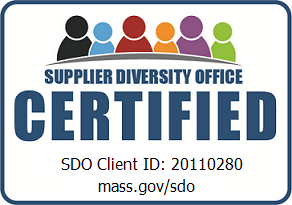COVID-19 is unlike anything any of us have seen in our lifetimes. With the pandemic undoubtedly impacting most, if not all industries, crisis communications experts can help us get through and overcome ever-evolving communication challenges associated with this public health emergency.
Philip Hauserman, director of crisis communications at The Castle Group, discusses best practices for communicating during this unprecedented time, how to clearly and effectively communicate with the audiences that matter most, and what the COVID-19 situation can teach us about crisis communications.

Q: What advice would you give anyone pushing out proactive communication during this time?
Philip: Having a clear understanding of what is happening in the world is extremely important. The worst thing companies can do right now is push out a story or campaign that is tone deaf to the current environment and its impact on stakeholders. Depending on the nature of your business, now could be a perfect time to promote subject matter experts to provide insight and analysis of the virus’ affect on products, people, business lines, events, etc.
Q: Where is the fine line between overcommunicating and not communicating enough, given so much information is being thrown at everyone every day?
Philip: It’s important to proactively communicate with your audiences on a regular basis, particularly since this situation is evolving so quickly. Local, state and federal authorities are providing frequent updates and changing guidelines, and your stakeholders should know whether these announcements impact your business or relationship with them. This may mean reiterating past messages around closures, hours, personal hygiene or protocols. These are all important messages to convey, and you should do so in a format that is as digestible as possible, because we are all being inundated with information. The most successful communications are concise and to the point—bullets can work especially well.
Q: How important is it for communications to address medical concerns?
Philip: In a pandemic, everything is related to medical concerns. The COVID-19 pandemic has demonstrated just how important it is for organizations to have access to experts who can advise on specifics around diagnoses, social distancing, quarantine protocols, and best practices for health and safety – particularly when it comes to business continuity and recovery planning. As businesses are impacted, and when they are re-emerging from this, they’ll need to make and communicate sound decisions backed by the right expertise that augments and supports their leadership team.
Q: How will the novel coronavirus crises impact the future of crisis communications?
Philip: This crisis is a wakeup call for organizations that either didn’t have a crisis plan or had an outdated plan. While this pandemic created many sudden and unforeseen challenges, the basic structural elements of a crisis plan do not change much from issue to issue. Every organization should be able to quickly answer critically important questions when faced with a crisis. Who is on our crisis team and what are their roles? What action steps do we need to take immediately? What audiences do we need to communicate with and how? What messages do we need convey and when? Who will serve as our spokesperson? Contingencies—such as distance, leadership availability, time zone challenges, technology constraints and more—should be part of every crisis plan. When this is over – whenever that is – communications teams should devote considerable time analyzing what went well, what didn’t, and what can be improved upon.
Philip Hauserman is Castle’s director of crisis communications, and in addition to being on Castle’s COVID-19 Task Force, works closely with clients across the country to manage a range of crises. Thus far, during the pandemic, he has advised clients in the real estate, elder care, healthcare, professional services, financial services, manufacturing, non-profit, and education industries.
















